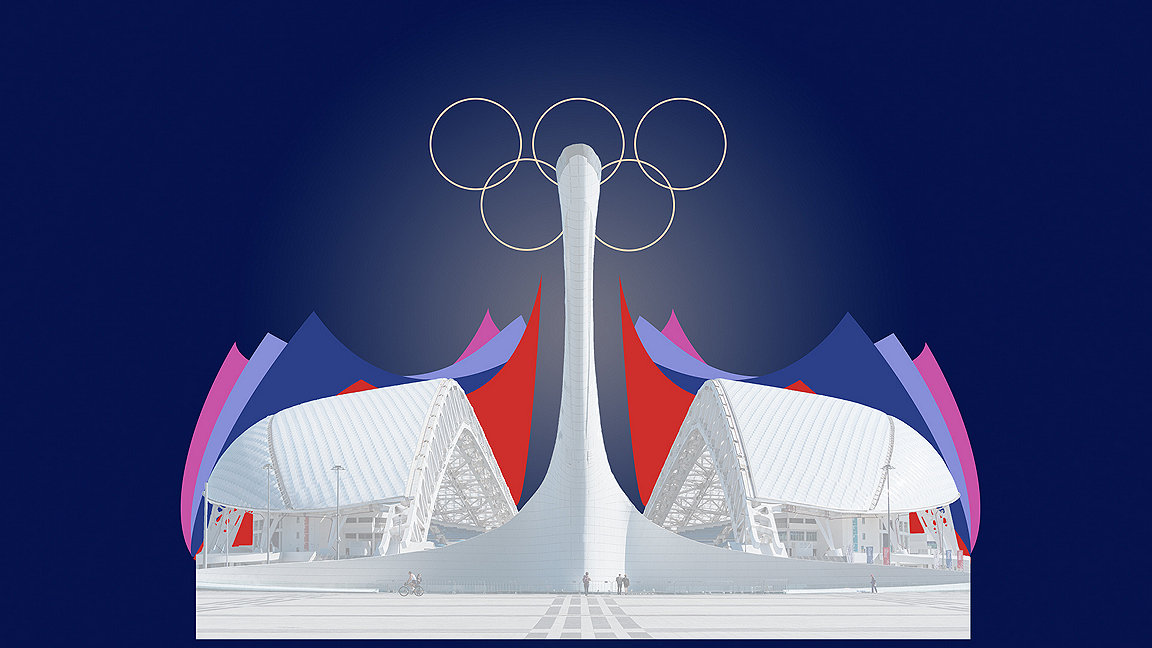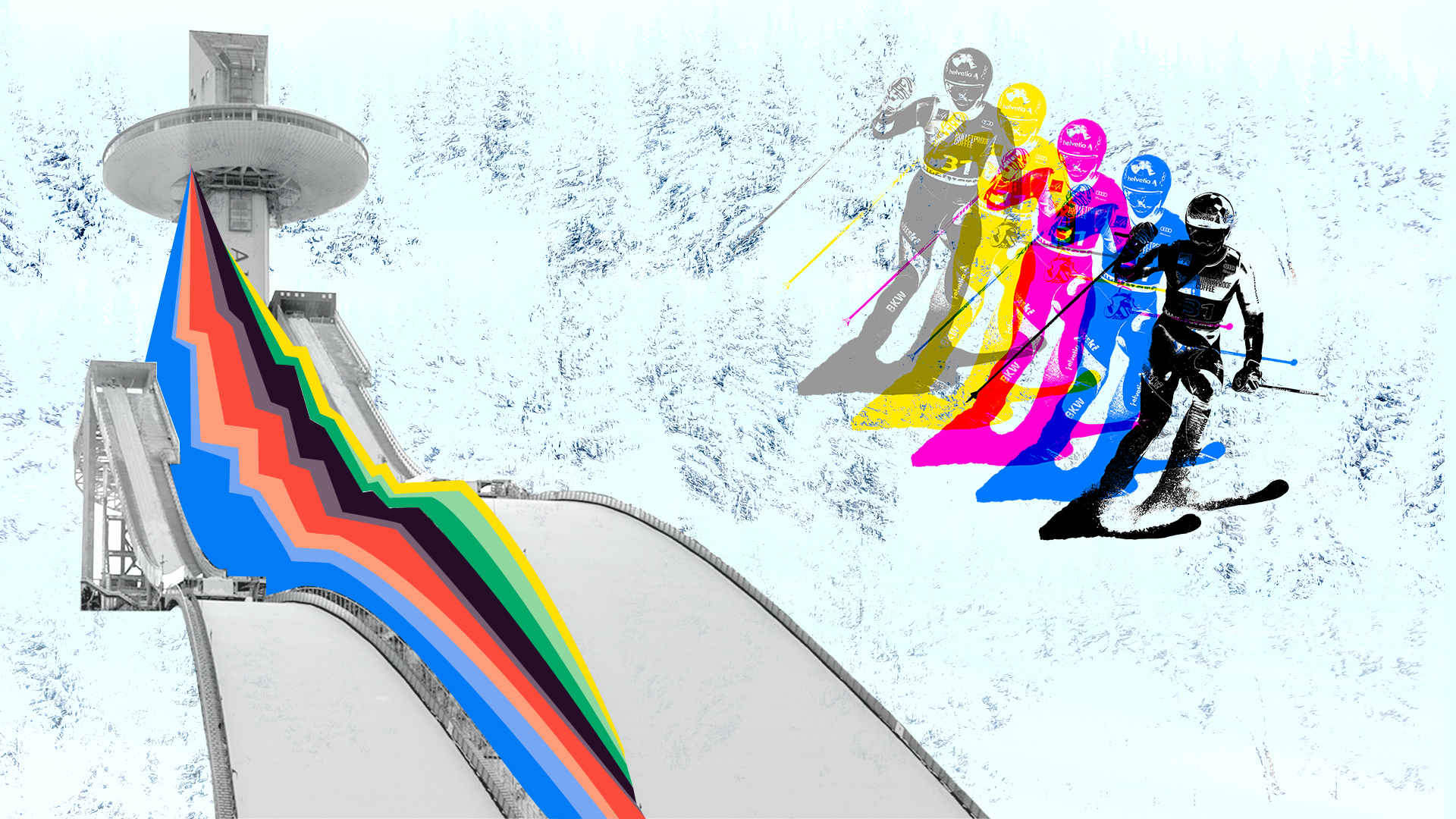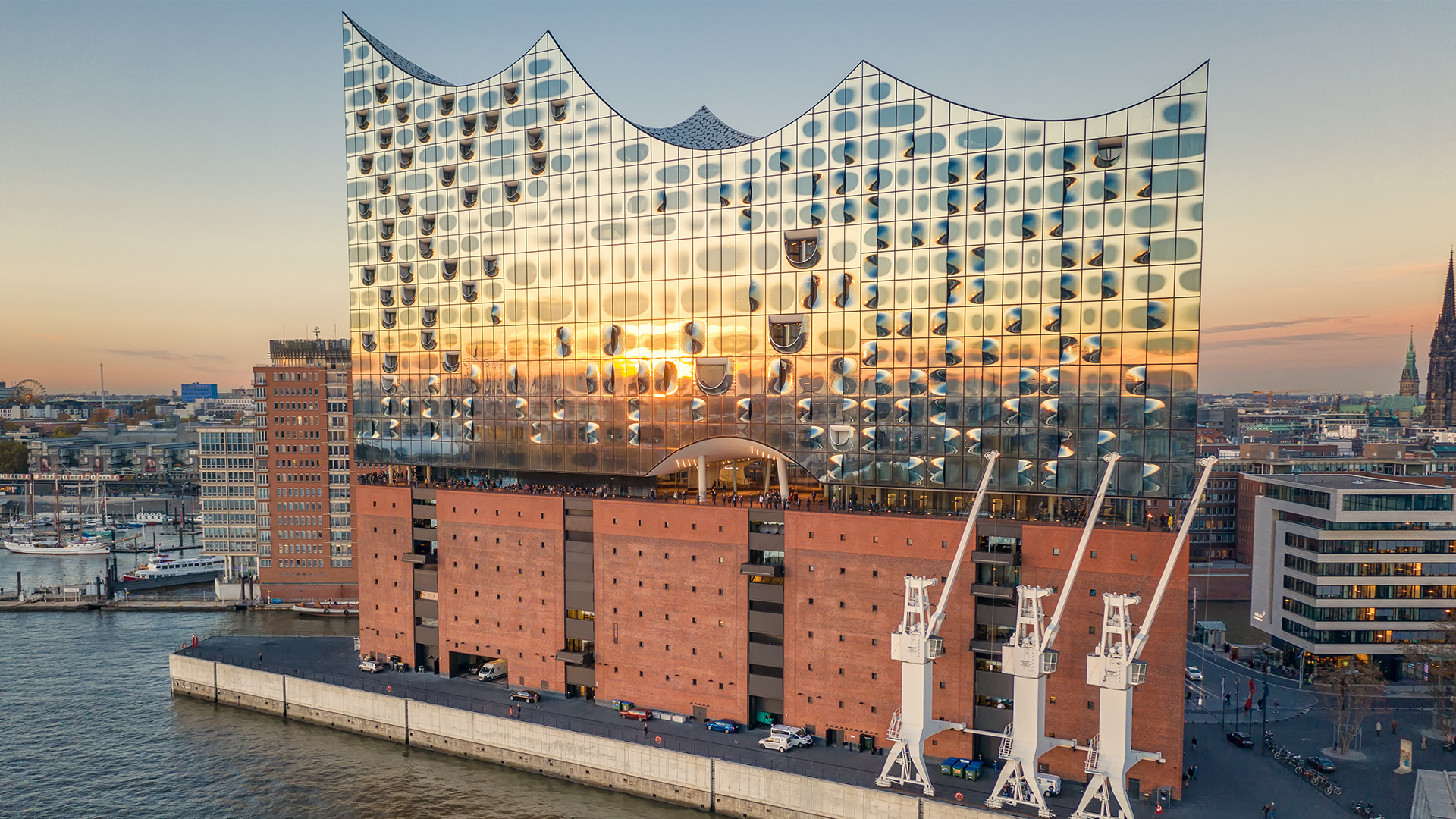
The Winter Olympics, much like its summer counterpart, is arguably the world’s greatest placemaking opportunity. The years preceding an Olympic Games can be a building bonanza for the host, creating new transport links infrastructure, jobs and economic prosperity. And then, when the time arrives and the athletes are going for gold, the host city gets a chance to shine in front of a global audience.
This month, the 24th Winter Olympics is taking place in Beijing and co-host city Zhangjiakou, with 3,000 competitors hoping to win gold. When the media leaves, the world’s televisions switch off and athletes head home clutching their medals, the question is what legacy is left for the towns and cities that host the games.
It can vary greatly depending on the size of the host – from the big like Vancouver, host in 2010 with a population of 2.2m; to the small like Lillehammer, host in 1994 with a population of 23,000.
While Beijing’s Winter Olympics legacy isn’t yet established, it hosted the summer Olympics in 2008 and the legacy from that includes greatly improved public transport and infrastructure.
“There were several new transport lines completed in the run up, including 5, 8, 10 and the Capital Express,” says James MacDonald, head of Savills research for China. He adds: “Ridership increased from 1.8m each day in 2017 to 5m each day by 2020.”
More recently, there has been new infrastructure developments such as the Beijing-Zhangjiakou high-speed railway, as well as new metro lines and extensions to existing lines.
McDonald says: “Outside of Beijing, there has been a lot of focus on Zhangjiakou, roughly 170km north-west of the capital. The new high speed railway line shortens the travel time from Beijing to Zhangjiakou from just over three hours to 47 minutes.”
The city of Zhangjiakou, which is going to host many of the Olympic skiing events, has also benefitted from extensive road improvements as well as city 'beautification’ efforts and environmental improvements.
Challenges to overcome
Weighing up the benefits and challenges for Beijing in hosting the Olympics, McDonald says: “At a national level it is hoped it will increase awareness of winter sports and encourage healthier lifestyles, a key priority now given the ageing society and a rise in chronic diseases related to lifestyle.” That’s assuming the sports facilities remain accessible after the Games and the slopes can be maintained with man-made snow. The more immediate challenge, however, is COVID-19 and the impact it can have on large-scale events.
Hopes of promoting the development of international tourism through the Winter Olympics will be difficult to achieve.
James Shepherd MRICS, head of business development services for Greater China at Cushman & Wakefield, says: “The biggest challenge facing the Winter Olympics in Beijing is the pandemic. To minimise the risks and due to prevailing COVID-19 related restrictions it has not been possible to sell tickets to overseas audiences and there are also restrictions on tickets for the domestic audience. For would-be spectators from outside Beijing, travel to the capital is also strictly controlled.”
A major worry for Beijing, and its population of 19.5m people, is (at the time of writing) that the pandemic is becoming more widespread with the Omicron variant. In mid-January Omicron was found in the major port of Tianjin near Beijing. Buses and trains from Tianjin to Beijing were suspended and people were told not to leave the city unless they had urgent business. As the Games get closer, the Chinese government can only hope the virus doesn’t threaten the games themselves with cancellation.
A further problem for the Chinese government is the accusations of unethical labour being used in the build-up to the Games and the diplomatic boycotts being imposed by countries including the US, Australia and UK over human rights abuses.
In January, questions were raised about the Chinese Olympic athlete’s kit, which is made in Xinjian, an area that produces cotton and camel hair. In this region of the country, the government is alleged to have used the forced labour of Uyghur Muslims. However, concerns about workers on sites in China are harder to verify given independent labour unions are barred by Chinese government.
“The biggest challenge facing the Winter Olympics in Beijing is the pandemic… It has not been possible to sell tickets to overseas audiences” James Shepherd MRICS, Cushman & Wakefield

Legacies of past Winter Olympic hosts
Just two years before the COVID-19 pandemic, the South Korean city PyeongChang hosted the Games in 2018 and it is going to resume hosting duties for the Winter Youth Olympic Games (YOG) in 2024. The 2018 Games left a legacy of renewed passion for winter sports, and according to the official Olympics.com site, “it also continues to hold international sports events this winter season. The province is hosting youth sports camps and educational programmes and is establishing international partnerships for global peace initiatives.”
A study by Simona Azzali of the department of architecture and urban planning in Qatar showed the main legacy of the 2014 Winter Olympics in Sochi, Russia was sports venues and major city infrastructure. These included the Fisht Olympic Stadium, which was renovated for the 2017 FIFA Confederations Cup and 2018 World Cup with extra seats. Soccer team FC Dynamo St Petersburg moved to Sochi and became PFC Sochi. However, with an estimated $51bn spent on the Games, some of the facilities built have been described as white elephants in a city best known as a summer resort for Russians.
Vancouver 2010
Like other host cities preparing for the Olympics, Vancouver invested in infrastructure, housing, and its Canada Line, a rapid transit line running between the airport and city centre. Environmental and sustainability concerns were a major focus for the organisers who wanted to leave behind an admirable social legacy. The Games included an early carbon offset programme and 70% of the heat for the Olympic Village came from waste heat recovery systems.
“Vancouver 2010 produced much more than unforgettable Olympic Games,” says Tricia Smith, president of the Canadian Olympic Committee. “It also set new standards for sport, sustainability and social legacies. Ten years on, these legacies continue to benefit the people of Vancouver and beyond.”
“Vancouver 2010 produced much more than unforgettable Olympic Games. Ten years on, these legacies continue to benefit the people of Vancouver and beyond” Tricia Smith, president of the Canadian Olympic Committee

Turin 2006
For Turin in Italy, host of the 2006 Winter Olympics, a big boost in tourism was a particular benefit, despite its reputation as an industrial city. “Thanks to 2006, everything changed,” said a spokesperson for Turin’s Olympic Park. “The data shows how good a job was done. Until 2006, Turin had barely a million tourists per year. Once the Games took place, this number shot up, reaching about 6m.
“Thanks to such an increase, Turin has climbed up to become one of the most popular cities for tourists in Italy after Rome, Venice, and Florence.”
Salt Lake City 2002
Next year is the 20th anniversary of the Salt Lake City Games, held in 2002 and only one of three US cities to have held the Winter Olympics. Today, every venue used in 2002 remains in use, while the creation of the Utah Olympic Legacy Foundation means the Games continue to inspire active, healthy lifestyles and increase community uses of Utah’s Olympic venues. The city is planning to bid to host the Olympics again, either in 2030 or 2034.
What effect will it have on Beijing?
Even without the Olympics, a major city such as Beijing should be familiar to everyone and hosting the Olympics might be considered as just the icing on the cake for a city's profile, says Shepherd. “But for some smaller cities, holding the Olympic Games can effectively introduce the city on the world stage.
“Such a city's population, economic capacity and development trajectory may be modest, but the hosting of the Olympic Games may have a more profound impact than in a major city. It can dramatically change the city's visibility, outlook and create opportunities for the city's future development.”
Economically, however, there is no real short-term gain for any city. Dr Esmond Birnie, senior economist at the Ulster University Economic Policy Centre, says: “My impression is that no host city ever makes a real net economic gain.”
This is because of the immense cost of hosting the Games. Figures from website Investopedia.com show that Vancouver brought in $2.8bn after spending $7.6bn on the Winter Games in 2010. However, the citizens of Vancouver continue to make use of the transit line built from the airport to the city’s downtown area.
There is also a trend that house prices in the vicinity of an Olympic Village tend to rise sharply in the years after the Games have taken place. In the east London borough of Waltham Forest (close to the Olympic Stadium) house prices have gone up 106% since the 2012 Olympics. And in Sydney, host of 2000 Olympics, the median house price rose 88% in the five years to 2001.
The unique prestige that comes with being a host city for an event viewed around the world can be priceless too. Barcelona (host in 1992) made the most of this, revitalising its industrial waterfront and putting itself on the international tourism map.
These long-lasting benefits are something the hosts of the 2026 Winter Olympics, the Italian cities of Milan and Cortina d'Ampezzo, will be hoping awaits them.
A strain on resources?
People are sometimes left scratching their heads when host cities are announced for major sporting events. Here are some host cities that have faced criticism.
Beijing / Zhangjiakou 2022 Winter Olympics
Up to 49 million gallons of water will be used to create artificial snow for the ski and snowboard slopes, making it the first Winter Olympics to rely completely on artificial snow. At PyeongChang four years ago the snow was 90% fake. In the case of this year’s Olympics, it’s going to consume nearly 10% of all the water in the district of Zhangjiakou, where many of the skiing and snowboarding events are taking place
FIFA World Cup 2022 in Qatar
The FIFA World Cup traditionally takes place every four years in June, in a different host country around the world. When the 2022 tournament was awarded to Qatar, eyebrows were instantly raised because the average temperature in Doha in June is around 41oC and can reach a scorching 50oC. In short, too hot to play football, so the tournament is now happening from 21 November to 18 December.
Seven of the tournament’s eight stadiums have been built from scratch – this has been clouded in a host of accusations of human rights abuses and migrant workers dying in substandard conditions. And those stadiums are all being fitted with giant cooling systems, despite the tournament organisers promising a carbon neutral World Cup.
Atlanta 1996 Summer Olympics
Many had expected the centenary edition of the Olympics to head back to Athens where it all began but instead the International Olympic Committee (IOC) picked Atlanta, Georgia. Heat was once again an issue, with an average July temperature of 32oC, but the organisers wanted to make use of college and university dormitories to house the athletes – something they could not have done in September or October when the students were in town.
Poor transportation planning also plagued the Games, with spectators reporting being stuck on buses for hours in the sweltering heat. At one point, things got so bad that a group of British, Ukrainian and Polish rowers blocked the route of a shuttle bus leaving the Olympic Village and forced the driver to change his destination to their rowing site at Lake Lanier.



